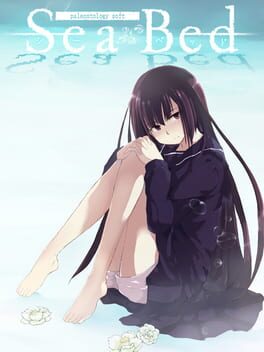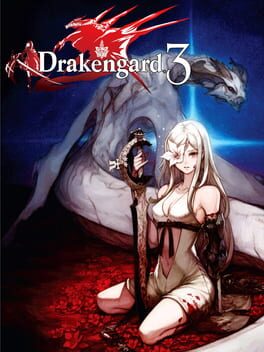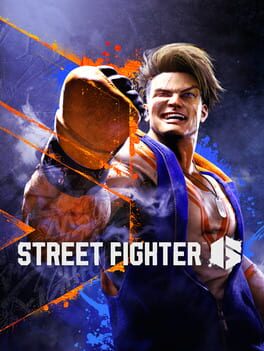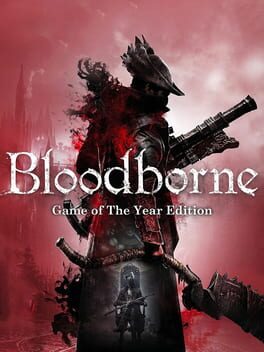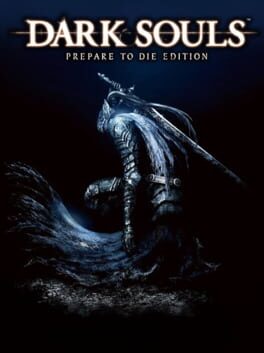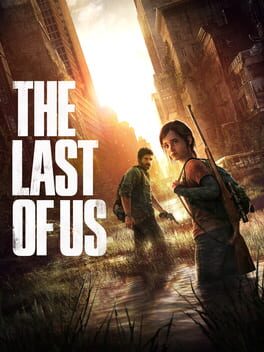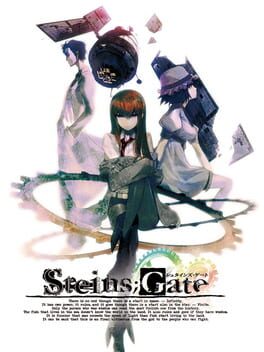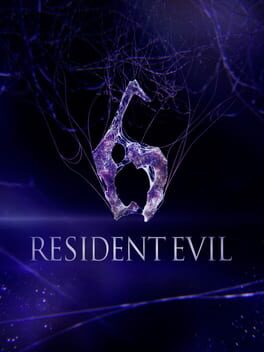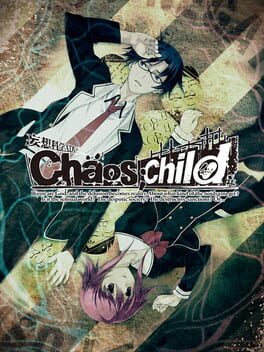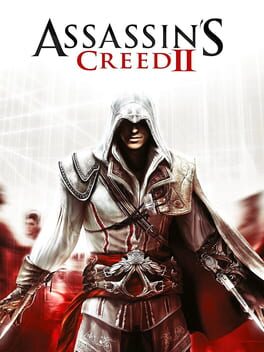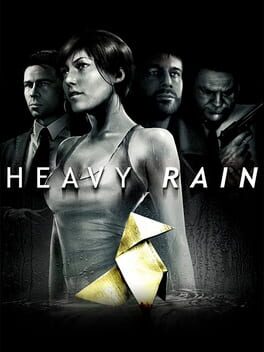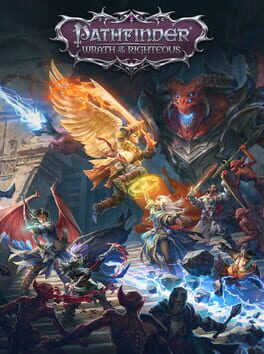2016
Like the wide ocean, it’s not about what appears on the surface. A tempest could be accompanied by a placid underwater, a calm stands above fierce undercurrents. It’s about what is below all of that, the true depth, the almost magical, unknown world of the seabed, where the idiosyncratic and unconstrained sprouts and lies. It can’t be conveyed all at once, you scoop some water but just so much can be held in your hands, so you look for ways to show more without spilling any. These vessels can be a glass, a bucket, a word, a music, a picture, they are all manifestations of the seabed in the real world. There is nothing overly dramatic about it, it’s just how nature works, and in all its simplicity it is such a beautiful place.
2013
2022
Hauntingly beautiful, a quasi-metaphorical descent into a hell of gears, flesh and madness. Visually relentless, brutal and visceral, mechanically tight and curiousity-driven, and narratively densly impenetrable yet touchingly human, Signalis wears its inspirations like a badge of honour and showcases the best that each of its genres has achieved in recent decades.
2023
Bloodborne is, together with C. Mieville, what made me fall in love and ruined every other Lovecraftian fiction. I wish more modern gothic horror narratives dealt in such a complete and creative way with tropes such as men versus gods, the grasp for knowledge and purpose in a mysterious, uncaring cosmos, anti-myths and so on.
Dark Souls isn’t hard or unfair, you just need a whole playthrough before you have a decent character. Can’t believe all the times Seath wrecked me, how did I even manage to suck so much?
But that is not what I wanted to discuss here, there are already far too many dank memes about Dark Souls to just imitate other funny reviews joking about the learning curve of the game. What I wanted to focus on was what hooked me initially to the game and what I came to appreciate the most about the series as a whole (yeah, including Demon’s and Bloodborne): the storytelling.
It all begins with the simple fact that I am a huge fantasy fan when it comes to narrative, and Dark Souls does something that I have rarely seen in fantasy in my recent memory, especially eastern made: it does something original. We are all too accustomed to Tolkien and D&D’s pastiches to realize there is something more to fantasy than just adding alien species which still act and think like humans, sucking every sense of wonder from the experience of exploring a fantasy world. Orc, dwarves and elves are as familiar to us as dogs, cats and other house pets: sure, they are alien to us humans but we grew used to them being there and they don’t give us any sense of discovery or surprise.
Dark Souls subverts this by building a world devoid of species inspired by such mundane mythologies, or villains striving for world end or riches, and instead focuses on a far more attractive premise: the world was once empty, void, there was no life or death to speak of and the only living beings were immortal Dragons whose main occupation was to just chill around for all of the eternity. Until, that is, evolution happened, in the form of a flame which symbolizes disparity, and that disparity holds an immense power. Then came the Lords, the rising gods of this empty world, using the flame to challenge the Dragons and claim their role as sovereign of all creation. After a long, brutal war, the Gods came out victorious and built their reigns while still holding the power of the fire, nurturing it so that it shall never fade. That’s the intro of the game, and basically the only time the game will spoon-feed you with important informations. Not that anything more is needed because any major point is eventually subtlety conveyed to the player, but by talking to characters you will meet during the game and reading item descriptions (or by just simply exploring and being observant) you’ll receive much, much more: in depth details about where exactly are you, who the being surrounding you are, what are their goals and motives and what is your role in all these plays among Gods. It is a world as subtle and as mysterious as Nihei’s Blame was. The game director Miyazaki mastered the art and meaning of show-don’t-tell in this series, which in itself is amazing, but what made it so much more than it initially appears is the actual content.
What is the player’s role in all of this? The protagonist is just an unnamed, weak human, now undead, who just kind of arrives at the land of the Lords and wander around killing (or rather, being killed by) everything in sight, no much story to be told about him. Yet, while you’re slowly descending in a hell of decay and undead, crawling through ruins and slaying god-like beings, it is unavoidable to start wondering “Why is everything falling to pieces, and why a single strip of bacon such as myself is able to single-handedly stab a God until it dies?”. That is, my friend, because they are Gods no more. Playing through the game and meeting the right characters will let you realize that you are no more in the ancient era of the Gods, but millennia after, their powers are now fading and what was once luminated by the light of the fire will inevitably succumb to darkness once the fire ceases to shine. You are exploring through a lie, a deception the Gods created to protect themselves from the unavoidable. They have gone mad, once terrific beings now by comparison powerless, now scared to lose everything they created, to die and be no more as the Dragons they themselves slaughtered. Which bring us to the player role in all of this, what exactly do you have to accomplish? Basically, some sort of doom is imminent upon the world and all humans, something so jarring even Gods are unable to deal with it. Is there a way for you to salvage the situation and bring a happy ending?
No, there is not.
Because you are not the hero, you are not the knight rolling in town with a shining armour and master sword. Rather, you are the judge. Dark Souls is a trial, a trial where you are presented all the evidence of a case of mass murder, crime against humanity and hoax, with aggravations such as intentional deception, hubris, arrogance, cruelty, the list goes on. You are not slaying the Lords to correct the inequality and injustices in the world, in fact many of them you could just avoid to fight at all. You are being shown their crimes and have to bestow judgment upon them. By the ending, when you face the final boss, this is all the clearer as you think back on your journey and realize exactly what you are facing, and that’s where you have to decide based on what you’ve seen, what you’ve been fighting. Did you murder senselessly what was already dead? Did you bring castigation upon being undeserving any mercy? Or maybe you put them out of their misery? Or, as I did in many playthroughs, you left them where they are, silently condemning them but understanding why they acted that way and, in some way, respecting the gentle illusion they were trying to protect. The Gods in Dark Souls are flawed Gods, they built a world which wasn’t perfect or eternal, they believed they had the power it took to rise above ground and strike for the sun, just to burn and fall down on earth again. These are Paradise Lost’s Satan-like Gods, who are not faulty for what they attempted to do, for their pride and their ambitions, after all they are just as human as the beings they tried to corrupt.
Dark Souls is filled with the moral ambiguity this realization holds. It shows you the aftermath of a glory that once was and let you decide its worth.
I love this moral ambiguity.
Thus I love Dark Souls.
But that is not what I wanted to discuss here, there are already far too many dank memes about Dark Souls to just imitate other funny reviews joking about the learning curve of the game. What I wanted to focus on was what hooked me initially to the game and what I came to appreciate the most about the series as a whole (yeah, including Demon’s and Bloodborne): the storytelling.
It all begins with the simple fact that I am a huge fantasy fan when it comes to narrative, and Dark Souls does something that I have rarely seen in fantasy in my recent memory, especially eastern made: it does something original. We are all too accustomed to Tolkien and D&D’s pastiches to realize there is something more to fantasy than just adding alien species which still act and think like humans, sucking every sense of wonder from the experience of exploring a fantasy world. Orc, dwarves and elves are as familiar to us as dogs, cats and other house pets: sure, they are alien to us humans but we grew used to them being there and they don’t give us any sense of discovery or surprise.
Dark Souls subverts this by building a world devoid of species inspired by such mundane mythologies, or villains striving for world end or riches, and instead focuses on a far more attractive premise: the world was once empty, void, there was no life or death to speak of and the only living beings were immortal Dragons whose main occupation was to just chill around for all of the eternity. Until, that is, evolution happened, in the form of a flame which symbolizes disparity, and that disparity holds an immense power. Then came the Lords, the rising gods of this empty world, using the flame to challenge the Dragons and claim their role as sovereign of all creation. After a long, brutal war, the Gods came out victorious and built their reigns while still holding the power of the fire, nurturing it so that it shall never fade. That’s the intro of the game, and basically the only time the game will spoon-feed you with important informations. Not that anything more is needed because any major point is eventually subtlety conveyed to the player, but by talking to characters you will meet during the game and reading item descriptions (or by just simply exploring and being observant) you’ll receive much, much more: in depth details about where exactly are you, who the being surrounding you are, what are their goals and motives and what is your role in all these plays among Gods. It is a world as subtle and as mysterious as Nihei’s Blame was. The game director Miyazaki mastered the art and meaning of show-don’t-tell in this series, which in itself is amazing, but what made it so much more than it initially appears is the actual content.
What is the player’s role in all of this? The protagonist is just an unnamed, weak human, now undead, who just kind of arrives at the land of the Lords and wander around killing (or rather, being killed by) everything in sight, no much story to be told about him. Yet, while you’re slowly descending in a hell of decay and undead, crawling through ruins and slaying god-like beings, it is unavoidable to start wondering “Why is everything falling to pieces, and why a single strip of bacon such as myself is able to single-handedly stab a God until it dies?”. That is, my friend, because they are Gods no more. Playing through the game and meeting the right characters will let you realize that you are no more in the ancient era of the Gods, but millennia after, their powers are now fading and what was once luminated by the light of the fire will inevitably succumb to darkness once the fire ceases to shine. You are exploring through a lie, a deception the Gods created to protect themselves from the unavoidable. They have gone mad, once terrific beings now by comparison powerless, now scared to lose everything they created, to die and be no more as the Dragons they themselves slaughtered. Which bring us to the player role in all of this, what exactly do you have to accomplish? Basically, some sort of doom is imminent upon the world and all humans, something so jarring even Gods are unable to deal with it. Is there a way for you to salvage the situation and bring a happy ending?
No, there is not.
Because you are not the hero, you are not the knight rolling in town with a shining armour and master sword. Rather, you are the judge. Dark Souls is a trial, a trial where you are presented all the evidence of a case of mass murder, crime against humanity and hoax, with aggravations such as intentional deception, hubris, arrogance, cruelty, the list goes on. You are not slaying the Lords to correct the inequality and injustices in the world, in fact many of them you could just avoid to fight at all. You are being shown their crimes and have to bestow judgment upon them. By the ending, when you face the final boss, this is all the clearer as you think back on your journey and realize exactly what you are facing, and that’s where you have to decide based on what you’ve seen, what you’ve been fighting. Did you murder senselessly what was already dead? Did you bring castigation upon being undeserving any mercy? Or maybe you put them out of their misery? Or, as I did in many playthroughs, you left them where they are, silently condemning them but understanding why they acted that way and, in some way, respecting the gentle illusion they were trying to protect. The Gods in Dark Souls are flawed Gods, they built a world which wasn’t perfect or eternal, they believed they had the power it took to rise above ground and strike for the sun, just to burn and fall down on earth again. These are Paradise Lost’s Satan-like Gods, who are not faulty for what they attempted to do, for their pride and their ambitions, after all they are just as human as the beings they tried to corrupt.
Dark Souls is filled with the moral ambiguity this realization holds. It shows you the aftermath of a glory that once was and let you decide its worth.
I love this moral ambiguity.
Thus I love Dark Souls.
2013
2009
Spoilers in the review because who even cares anymore
Steins;Gate is one of the most successful mess ever written. It is a confused, overlong slog devoid of characters, pacing and meaning. A walking shadow, a poor player that struts and frets his hour upon the stage and then is heard no more. It is a tale told by an idiot, full of sound and fury, signifying nothing.
It presents itself as a comedic, thriller-themed, sci-fi-ish slice of life piece about a group of wacky nerdy friends, as aware and believable in their roles as the big bang theory’s cast, which spends the first half of the game concluding nothing of relevance and the latter half of the game undoing the former. There is a significant attempt to deliver a message about the importance of free will in humanity, about our own limits, to face and accept the choices and consequences of our own free will and actions, establishing that we cannot have an ideal, easy, cotton-candy life because there is always a part of the world beyond our control, that we do have an impact on the world, and then the message is sent down the flush because we need an happy ending so here’s the resolution done off-screen for the main characters and believe in yourself, coincidence and improvisation will solve every conflict. Hours after reading through the misery of characters you are supposed to like, the game just gives you the comfortable solution that none of that matters, people will still be happy and you have to pretend those conflict never existed.
The protagonist, okabe, is a useless slab of wasted air, he fancies himself a science genius when he has no theoretical expertise aside from googling and reading stuff on Wikipedia and online boards, no technical skill, if it were not for the clear instructions others give him. Every major important concept in the story is introduced, theorized, discussed, solved and then engineered by someone else, he just uses them with barely knowing how any of those work. He also behaves like a daft twat for half of the game toward anyone, yet people still stick around him and act like he’s a dear friend despite being showered in his chauvinism, arrogance and terrible, terrible manners. When at the midpoint of the story he’s supposed to grow and start act like a caring individual, as said before he just undoes and forgets gradually every conflict his ‘friends’ have, and when he has to face the consequences of his actions, once again someone else hands him the deus ex machina, without him having to do any effort except crying and be sad about it for a bit. You aren’t even given the time to assimilate and feel the weight of the events, as you already expect a convenient solution to be on the way by that point.
The pacing is all over the place: many chapters that should be focused on progressing the story just digress and forget any sense of urgency despite time being the central idea of the story. A whole chapter is dedicated to having someone win a yu-gi-oh tournament, which isn’t even the main conflict of the arc’s protagonist, and then the real issue is presented and quickly dealt with in ten minutes before undoing it again and moving on to someone else’s life to ruin. This is gorilla-tier writing, how do you spend over half of your chapters’ length like this, with no editor to cut out the unnecessary bits, is beyond me.
The side cast is a mix of unfunny, clichéd anime tropes, with the major actors being a dumb happy-go-lucky girl whose major defining traits are being dumb and happy-go-lucky, a supposedly genius engineer and hacker constantly acting like a dangerous sexual molester, a psychotic super soldier so stupid she’d forget to eat or breath if you didn’t tell her to, another psychotic super soldier which should solve all the plot within minutes of playing start but there’s another idiot I guess, the genius tough but shy girl that should sound conflicted but actually has an emotional disorder and is just made fun of by everyone else, writer included. I didn’t even touch upon the token moe stereotype with no growth because, let’s face it, all the female characters can easily apply for the role.
The CGI and character design are hideous, poorly drawn, with terrible proportions and depth, weird colouring, unnatural and unhuman faces, body proportions and expressions (those eyes will hunt me in my sleep), that make the story seem like it takes place in alternate universe where everyone is the creature from the movie ‘the fly’. Credit where credit is due, the voice acting work and sound is pretty impressive, there are some really powerful tracks in the background music and most of the voice actors, from miyano mamoru to seki tomokazu, from tamura yukari to googling imai asami, each of them play their roles and the emotions they should convey very well.
That being said, even as a sound novel steins;gate is still overlong and riddled with dumb twists and nonsense to serve shock value rather than compelling, meaningful progression and satisfying conclusions based on its own terms, development and themes. If you want a visual novel dealing with sci-fi and thriller there’s plenty of dumb fun to be had with the nonary games, as bad as those can get, or just read chaos;child and experience the better sci;adv novel.
Steins;Gate is one of the most successful mess ever written. It is a confused, overlong slog devoid of characters, pacing and meaning. A walking shadow, a poor player that struts and frets his hour upon the stage and then is heard no more. It is a tale told by an idiot, full of sound and fury, signifying nothing.
It presents itself as a comedic, thriller-themed, sci-fi-ish slice of life piece about a group of wacky nerdy friends, as aware and believable in their roles as the big bang theory’s cast, which spends the first half of the game concluding nothing of relevance and the latter half of the game undoing the former. There is a significant attempt to deliver a message about the importance of free will in humanity, about our own limits, to face and accept the choices and consequences of our own free will and actions, establishing that we cannot have an ideal, easy, cotton-candy life because there is always a part of the world beyond our control, that we do have an impact on the world, and then the message is sent down the flush because we need an happy ending so here’s the resolution done off-screen for the main characters and believe in yourself, coincidence and improvisation will solve every conflict. Hours after reading through the misery of characters you are supposed to like, the game just gives you the comfortable solution that none of that matters, people will still be happy and you have to pretend those conflict never existed.
The protagonist, okabe, is a useless slab of wasted air, he fancies himself a science genius when he has no theoretical expertise aside from googling and reading stuff on Wikipedia and online boards, no technical skill, if it were not for the clear instructions others give him. Every major important concept in the story is introduced, theorized, discussed, solved and then engineered by someone else, he just uses them with barely knowing how any of those work. He also behaves like a daft twat for half of the game toward anyone, yet people still stick around him and act like he’s a dear friend despite being showered in his chauvinism, arrogance and terrible, terrible manners. When at the midpoint of the story he’s supposed to grow and start act like a caring individual, as said before he just undoes and forgets gradually every conflict his ‘friends’ have, and when he has to face the consequences of his actions, once again someone else hands him the deus ex machina, without him having to do any effort except crying and be sad about it for a bit. You aren’t even given the time to assimilate and feel the weight of the events, as you already expect a convenient solution to be on the way by that point.
The pacing is all over the place: many chapters that should be focused on progressing the story just digress and forget any sense of urgency despite time being the central idea of the story. A whole chapter is dedicated to having someone win a yu-gi-oh tournament, which isn’t even the main conflict of the arc’s protagonist, and then the real issue is presented and quickly dealt with in ten minutes before undoing it again and moving on to someone else’s life to ruin. This is gorilla-tier writing, how do you spend over half of your chapters’ length like this, with no editor to cut out the unnecessary bits, is beyond me.
The side cast is a mix of unfunny, clichéd anime tropes, with the major actors being a dumb happy-go-lucky girl whose major defining traits are being dumb and happy-go-lucky, a supposedly genius engineer and hacker constantly acting like a dangerous sexual molester, a psychotic super soldier so stupid she’d forget to eat or breath if you didn’t tell her to, another psychotic super soldier which should solve all the plot within minutes of playing start but there’s another idiot I guess, the genius tough but shy girl that should sound conflicted but actually has an emotional disorder and is just made fun of by everyone else, writer included. I didn’t even touch upon the token moe stereotype with no growth because, let’s face it, all the female characters can easily apply for the role.
The CGI and character design are hideous, poorly drawn, with terrible proportions and depth, weird colouring, unnatural and unhuman faces, body proportions and expressions (those eyes will hunt me in my sleep), that make the story seem like it takes place in alternate universe where everyone is the creature from the movie ‘the fly’. Credit where credit is due, the voice acting work and sound is pretty impressive, there are some really powerful tracks in the background music and most of the voice actors, from miyano mamoru to seki tomokazu, from tamura yukari to googling imai asami, each of them play their roles and the emotions they should convey very well.
That being said, even as a sound novel steins;gate is still overlong and riddled with dumb twists and nonsense to serve shock value rather than compelling, meaningful progression and satisfying conclusions based on its own terms, development and themes. If you want a visual novel dealing with sci-fi and thriller there’s plenty of dumb fun to be had with the nonary games, as bad as those can get, or just read chaos;child and experience the better sci;adv novel.
2012
It's not the funniest 80-90s action movie I've played, but it does its work well enough in single player and coop alike. Could use more cheesy madcap bits in its story over long empty hallways downtimes, or just make the mercenary mode somehow the story campaign, but otherwise is an "okay" sequel to an "okay" sequel to RE4.
2017
1998
Nothing says genius storytelling as entering a dungeon, realising you are low on hp and mana despite coming from your hub ship which is where the game taught you hp and mana get healed whenever you enter it, so backtrack out of the dungeon, enter the ship, move the ship away because you can't enter its quarters when it's too close to the dungeon, then traverse the hangar, the elevator, the hallway, find the guy who'll let you sleep (he talks a lot, requires an input to confirm the healing and then some seconds of black screen have to pass for it to happen), then out of the sleeping room, back through the hallway, back through the elevator, into the deck, talk to the navigator who has some unimportant shit to say (because of course he has), move the ship back close to the dungeon, exit the ship, enter the dungeon, get back to the point you were before, fall down in the water and repeat all the platforming because this game was made by the creators of Bubsy 3D.
The story might be as genius and full of potential as a book from James fucking Joyce, but if that's really the kick just watch evangelion or read a fucking book. Most of the other games usually compared to books with dogshit gameplay (like planescape) at least allow you to skip through most of the gameplay if you just want to do the story.
The story might be as genius and full of potential as a book from James fucking Joyce, but if that's really the kick just watch evangelion or read a fucking book. Most of the other games usually compared to books with dogshit gameplay (like planescape) at least allow you to skip through most of the gameplay if you just want to do the story.
2014
Chaos;Child is already five years old and yet its social commentary is still as relevant and real as ever. Cleverly subverting the trend of teenagers solving with their youthful confidence conflicts greater far than them (de facto rendering steins;gate, from the same series, far more stupid than it already was), the story of chaos;child revolves around a chain of horrifying murders and the shocking truths that supposedly hide beneath the surface of a modern day media sensation.
Yet, that is indeed just the surface. Chaos;Child ventures into many different territories but at the core it is a work on the excessive power of mass media, internet noise, information wars and the terrifying coldness and the feeling of lack of purpose in modern times. While maintaining a coherent flow, sometimes slowing its pacing by giving the readers many moments of characters interactions, insight and respite to breath in and assimilate the many events transpiring, the plot always moves forward, asking relevant questions about the contemporary world and letting its characters answer them as they see fit. Are those the right answers? The wrong ones? It is hard to say. Living through difficult times is such an idiosyncratic experience that it is tempting to judge and impose our external views upon them, but even though we can express judgment is it really more important to understand and explain than to just simply understand?
Chaos;Child looks upon its characters, their struggles, their decisions, their successes and failures and, like an indifferent, omniscient eye, witnesses the worst inhumanities and never relents. When something bad happens there ain’t no silver lining or positive angle; characters might suffer and then have to deal with the consequences, even accepting their own mistakes, recognize their own flaws and act upon them, trying to better themselves or keep on running away. The underlying heroism in chaos;child does not equates to saving the world, sometimes it is just enough to accept our own limitations and do the best we can to make things slightly less worse for those we care about. As said before, there are no easy answers about what can be done to solve every problem; a tragedy is the misfortune brought upon oneself as a result of one’s own action. Oedipus was a tragic character because he killed his own father and married his mother as a result of his beliefs; Milton’s Satan was a tragic character because he decided to rebel against God due to his own hubris; Miyashiro Takuru is a tragic character because… well, that is the story to be found in Chaos;Child.
The production values in the visual novel are also amazing. The characters’ sprites are expressive, well-acted, Matsuoka Yoshitsugu probably gave his performance of a lifetime as Takuru. The sound design and soundtrack are eerie, creepy, haunting at times; there are many genuinely tense and scary moments, where the tension is so fully realized by combining sounds, writing and acting performances, reading on for too long in those moments might prove painful, yet one can hardly stop as long as the rhythm doesn’t relent.
Chaos;Child should be on everyone’s read-list for the sheer importance of the story, for how well it understands what is fundamentally nonsensical about the culture in 21st century and for how, rightfully so, it has proven to be the heir we were waiting for to the likes of serial experiments lain or kon satoshi’s works.
Yet, that is indeed just the surface. Chaos;Child ventures into many different territories but at the core it is a work on the excessive power of mass media, internet noise, information wars and the terrifying coldness and the feeling of lack of purpose in modern times. While maintaining a coherent flow, sometimes slowing its pacing by giving the readers many moments of characters interactions, insight and respite to breath in and assimilate the many events transpiring, the plot always moves forward, asking relevant questions about the contemporary world and letting its characters answer them as they see fit. Are those the right answers? The wrong ones? It is hard to say. Living through difficult times is such an idiosyncratic experience that it is tempting to judge and impose our external views upon them, but even though we can express judgment is it really more important to understand and explain than to just simply understand?
Chaos;Child looks upon its characters, their struggles, their decisions, their successes and failures and, like an indifferent, omniscient eye, witnesses the worst inhumanities and never relents. When something bad happens there ain’t no silver lining or positive angle; characters might suffer and then have to deal with the consequences, even accepting their own mistakes, recognize their own flaws and act upon them, trying to better themselves or keep on running away. The underlying heroism in chaos;child does not equates to saving the world, sometimes it is just enough to accept our own limitations and do the best we can to make things slightly less worse for those we care about. As said before, there are no easy answers about what can be done to solve every problem; a tragedy is the misfortune brought upon oneself as a result of one’s own action. Oedipus was a tragic character because he killed his own father and married his mother as a result of his beliefs; Milton’s Satan was a tragic character because he decided to rebel against God due to his own hubris; Miyashiro Takuru is a tragic character because… well, that is the story to be found in Chaos;Child.
The production values in the visual novel are also amazing. The characters’ sprites are expressive, well-acted, Matsuoka Yoshitsugu probably gave his performance of a lifetime as Takuru. The sound design and soundtrack are eerie, creepy, haunting at times; there are many genuinely tense and scary moments, where the tension is so fully realized by combining sounds, writing and acting performances, reading on for too long in those moments might prove painful, yet one can hardly stop as long as the rhythm doesn’t relent.
Chaos;Child should be on everyone’s read-list for the sheer importance of the story, for how well it understands what is fundamentally nonsensical about the culture in 21st century and for how, rightfully so, it has proven to be the heir we were waiting for to the likes of serial experiments lain or kon satoshi’s works.
2009
2010
